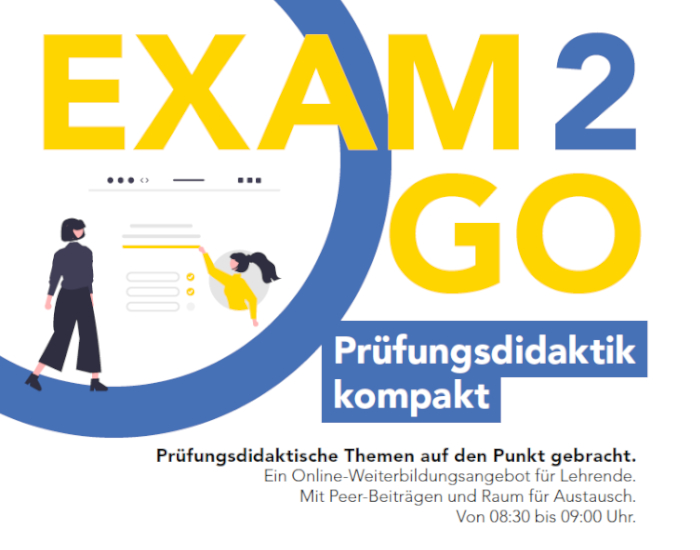Resources on assessment design
Pedagogical suggestions for successful performance assessment
Handouts and online resources (in German)
Exam2Go - Assessment design compact
-
Testing & Artificial Intelligence (AI) (uniTUBE video in German)
-
Question/task types and their possible applications (uniTUBE video in German)
-
Assessment Analytics: Evaluating and interpreting exam results (uniTUBE video in German)
-
Formative assessment in practice (uniTUBE video in German)
-
Assessing group performance (uniTUBE video in German)
-
One year of flExam at the University of Graz: experience report and outlook (uniTUBE video in German)
-
Combining exam components sensibly and assessing them fairly (uniTUBE video in German)
-
Combining examination components sensibly and assessing them fairly (practical example) (uniTUBE video in German)
-
Formulating open examination questions successfully and in a competence-oriented way (uniTUBE video in German)
-
Variety of examination formats (uniTUBE video in German)
-
Legal basics for examinations (uniTUBE video in German)
-
Assessing fairly and objectively: Recognising assessment tendencies (uniTUBE video in German)
-
What makes a good exam question? (uniTUBE video in German)
-
Constructive alignment: from learning objectives to examination tasks (uniTUBE video in German)
